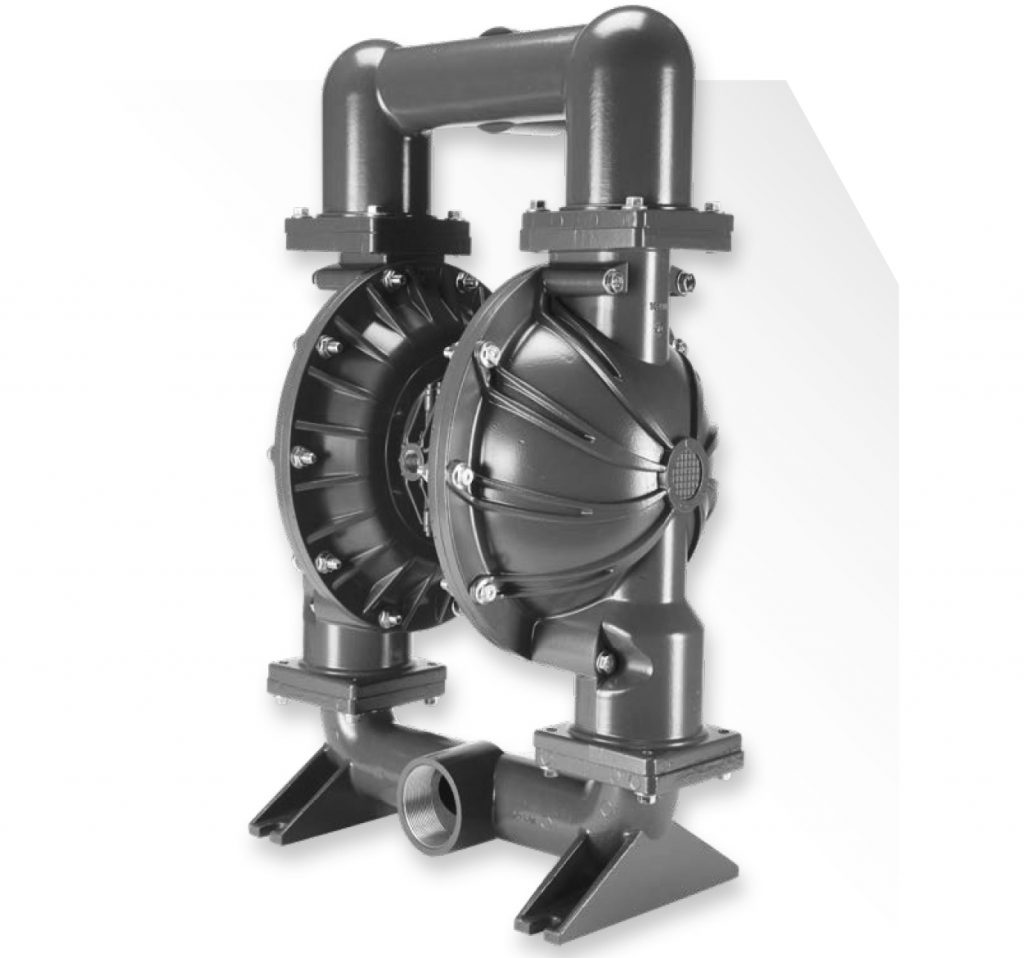Burke, TX Drum Pumps
Air-Operated Diaphragm Chemical Pumps are Durable, Reliable, and Easy to Maintain
These pumps can move a wide range of chemicals, both acidic and alkaline, reliably and with the least amount of maintenance. Because they are powered by air, they can be used in dangerous places because they can't explode and don't have any electrical parts. Air-Operated Diaphragm Chemical Pumps are long-lasting and reliable pieces of equipment that can be used for a long time in harsh conditions.
Not only do these pumps need little maintenance, but they also have a system of air valves that keeps the flow rate and pressure consistent. They work well to move a wide range of chemicals without the need for priming or lubrication. Air Operated Diaphragm Chemical Pumps are very easy to maintain, making them an ideal choice for many chemical applications.

Practical Applications for Drum Pumps in Burke, TX
- Gasoline production: The oil and gas industry uses drum pumps to transport fluids like oil.
- Chemical processing: Drum pumps are used to move chemicals in a range of chemical processing applications, such as the manufacture of personal care products, food processing, and pharmaceuticals.
- Water treatment: In water treatment facilities and other locations where clean water is required, drum pumps are used to move water and other fluids.
- Manufacturing: Fluids like coolants, lubricants, and cleaning agents are transferred using drum pumps in manufacturing settings.
- Drum pumps are used in the mining sector to move fluids like chemicals and water.
- Drum pumps are used in power generation facilities, such as nuclear power plants and coal-fired power plants, to move fluids.
- Agriculture: Drum pumps are used to deliver water and other fluids to plants and crops.
- Construction: To transport construction materials like concrete and grout, drum pumps can be used.
Air-Operated Diaphragm Chemical Pumps are Durable, Reliable, and Easy to Maintain
These pumps can move a wide range of chemicals, both acidic and alkaline, reliably and with the least amount of maintenance. Because they are powered by air, they can be used in dangerous places because they can't explode and don't have any electrical parts. Air-Operated Diaphragm Chemical Pumps are long-lasting and reliable pieces of equipment that can be used for a long time in harsh conditions.
Not only do these pumps need little maintenance, but they also have a system of air valves that keeps the flow rate and pressure consistent. They work well to move a wide range of chemicals without the need for priming or lubrication. Air Operated Diaphragm Chemical Pumps are very easy to maintain, making them an ideal choice for many chemical applications.
Burke Air-Operated Diaphragm Chemical Pump Designs & Their Advantages
Air Operated Diaphragm Chemical Pumps are a type of fluid-handling equipment that uses air pressure to move fluids. They come in different designs, such as single- and double-diaphragm models, ball valve designs, and nonmetallic wetted part constructions. These pumps are relatively affordable and versatile. They have high flow rates, can prime themselves, and can handle fluids that are abrasive or corrosive.
One key benefit is that they are self-priming and can run dry without damage, meaning they can be used even if the liquid levels fluctuate. Also, they can provide a steady flow rate with very little maintenance. Finally, since these pumps are air operated, they are easy to install and require minimal electricity usage.

Burke TX Drum Pumps
Drum pumps are utilized for a variety of industrial, commercial, and residential purposes that all entail transferring liquids from sizable drums or containers to other places where the liquid is needed. This involves moving liquids like water, oil, gasoline, and a variety of other kinds of chemicals. Drum pumps are useful for filling containers and for use in manufacturing because they can dispense fluids in precise volumes.
Drum pumps are widely used in a variety of sectors, including industrial, agriculture, and mining. Drum pumps are used in chemical processing businesses for things like food processing and pharmaceuticals. Drums are a common container in the water treatment and construction sectors, hence these businesses also employ drum pumps.


Practical Applications for Burke Small Centrifugal Pumps
Small Centrifugal pumps have a wide range of uses across varying industries. Examples of practical applications for small Centrifugal pumps include:
- Aquariums: To circulate water in aquariums, small Centrifugal pumps are employed.
- Chemical processing: Small Centrifugal pumps are used to move chemicals in a range of chemical processing applications, such as the creation of personal care products, food processing, and pharmaceutical manufacturing.
- HVAC systems: The fluids in heating, ventilation, and air conditioning systems are circulated by small Centrifugal pumps.
- In construction, small Centrifugal pumps are used to move materials like grout, concrete, and other materials.
- For irrigation in agriculture, small Centrifugal pumps are employed to deliver water and other fluids to plants and crops.
- Water treatment: In applications where clean water is required, such as water treatment plants, small Centrifugal pumps are used to move water and other fluids.
- Plumbing: To move water and other fluids in plumbing systems, small Centrifugal pumps are employed.
- Small Centrifugal pumps are utilized in medical devices like dialysis machines and infusion pumps.
- Small Centrifugal pumps are used in firefighting applications to move fluids like water and other substances.
